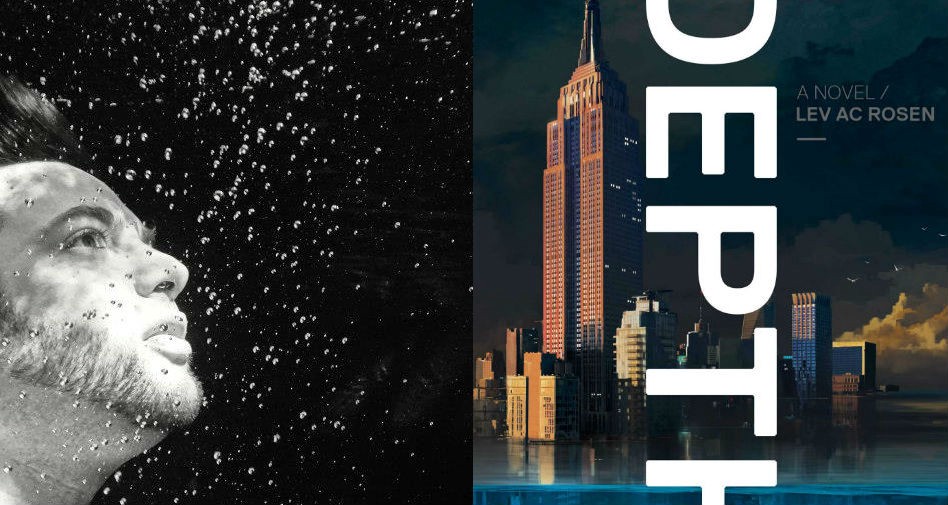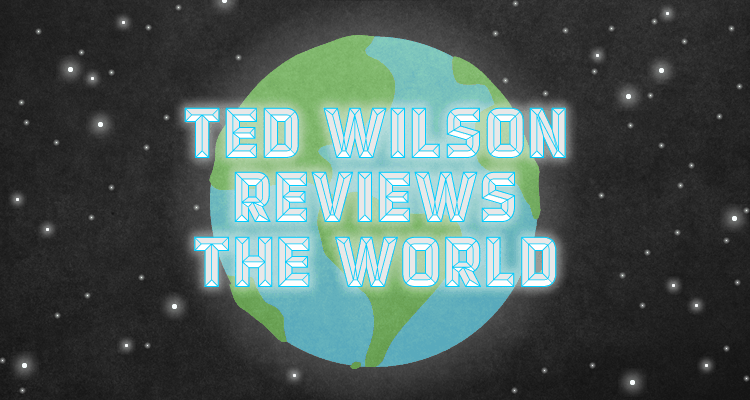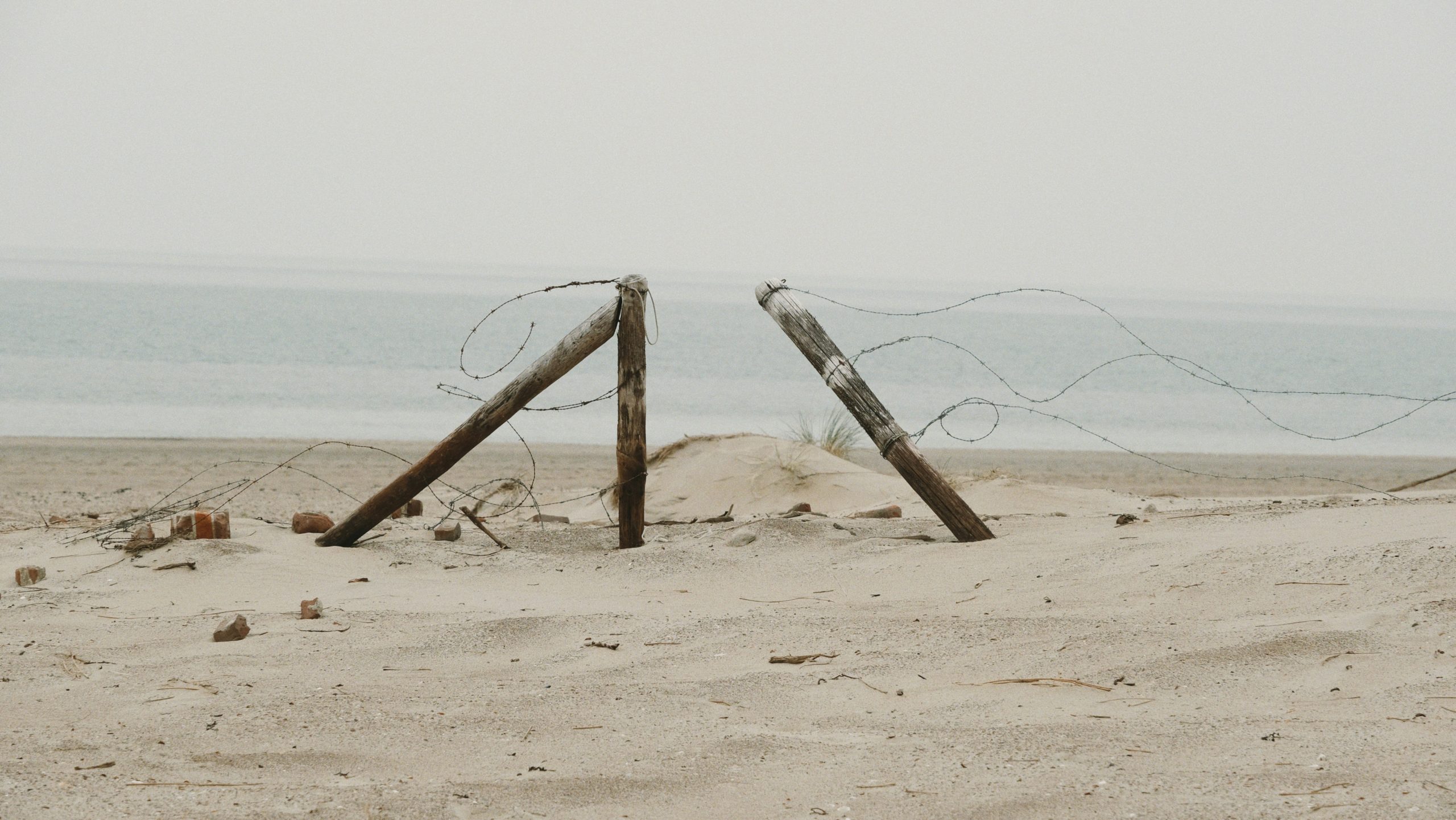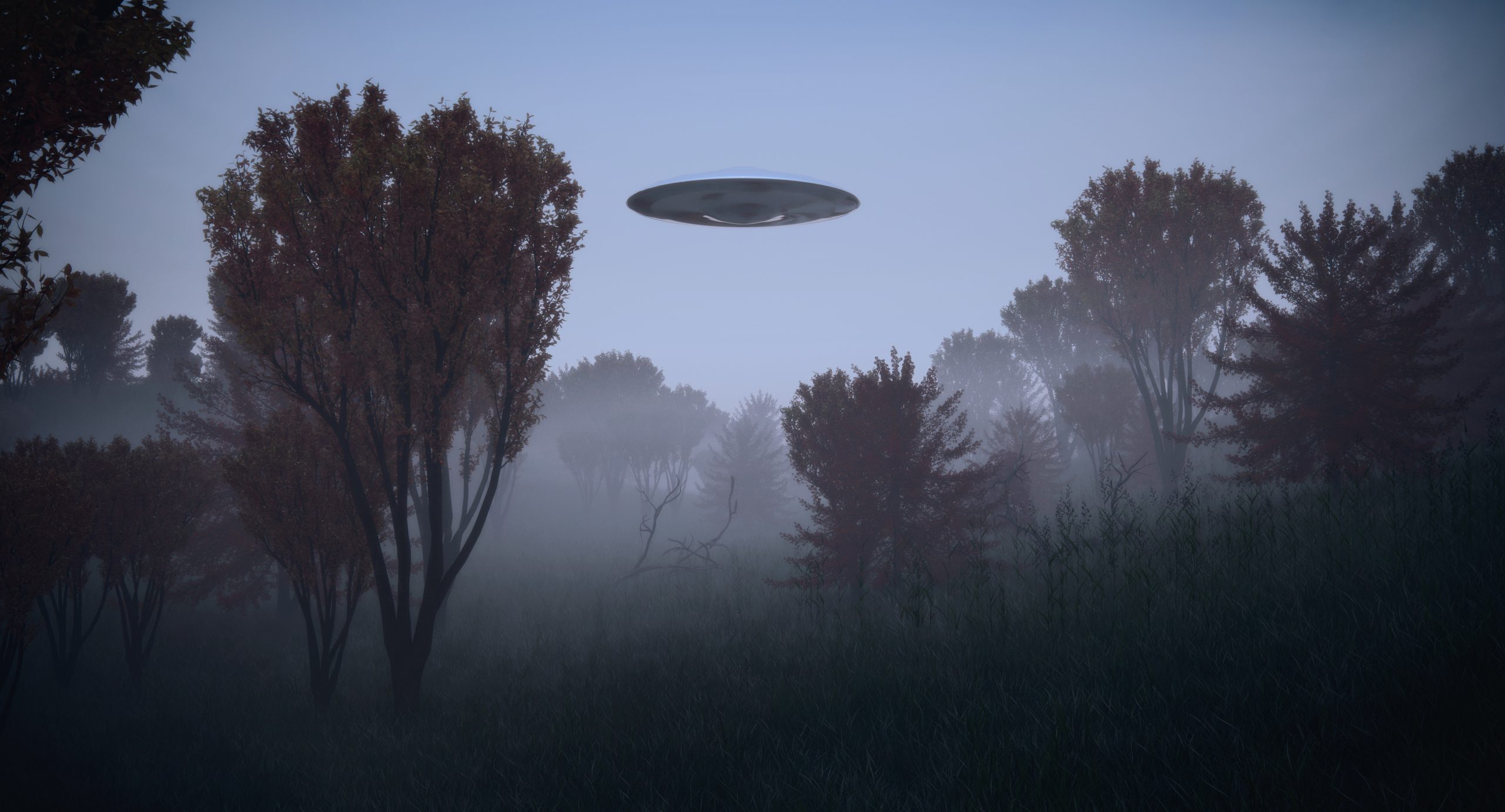Interviews
Noir or Sci-Fi? Thriller or Literature? Defying Categories with Lev AC Rosen

Vacillating between wry observations and insightful truths about all aspects of the writing craft, Lev AC Rosen is someone you should feel lucky to meet at a cocktail party. He’s also a brilliant writer of seemingly any genre he feels like delving into. Now, he’s just published his second novel, Depth (Regan Arts), a near-future thriller set in a Manhattan partially submerged underwater. (Think regular New York + Venice.) It’s a great whodunit, but it’s also a brilliant literary meditation on big cities. And once you get to know Lev — either in person or through his prose — you’ll get used to how funny his work is, too.
Recently, I chatted with Rosen about spoilers, mashing up mystery with sci-fi and the skills required to spin a crackerjack whodunit.
Ryan Britt: The book has been called Heinlein meets Hammett in terms of being a mash-up of science fiction and noir mystery. Were those influences? Or to put it another way: how much of this is science fiction novel versus a page-turning whodunit?
Lev AC Rosen: Hammett is definitely a huge influence on Depth — I re-read the Maltese Falcon while writing it to absorb as much flavor as I could. The sci-fi influences though, are more Blade Runner — which is to say, more Ridley Scott than Philip K. Dick. It’s definitely a classic noir at heart, but the location, the time — those are the science fictional elements. So yeah, a sci-fi world makes it a sci-fi; the mystery, the motives, the suspects, all are influenced by the science fiction of the world — many are impossible without it — but it’s still a noir skeleton under there. I think it still feels more like Hammett. Or maybe like Hammett writing science fiction.
Britt: You’ve got a partially submerged future-Manhattan as your setting, which has allowed for all sorts of great commentary not only on environmental concerns (polar ice caps melting) but concerns of urban life, too. Can you speak a little bit to the world building for Depth? How much of this concept existed before you had the characters?
I may be here to watch the city drown. And that moment — that sort of para-apocalyptic setting of the world towards the end of its life — is a gritty place.
Rosen: The concept was really the starting point. I grew up in New York, lived here my whole life, and I always wanted to write a noir set here, but so much of New York is shiny new real estate developments now — the grit of noir is harder to find. So I thought about how to get that back and what kept coming to mind was what it would look like in the future. Because, honestly, there’s not much of a future for the city right now. Some estimates put us at a crisis point in ten years, though most are more around 50. That’s potentially in my lifetime. I may be here to watch the city drown. And that moment — that sort of para-apocalyptic setting of the world towards the end of its life — is a gritty place. Plus, I got to selectively save a lot of the beautiful old real New York buildings and drown all those awful new real estate developments. But back to your question, concept definitely came first. New York with just the building tops and bridges. I worked out from there.
Britt: What are the essential components of a good mystery and how do you go about making sure your plotting isn’t too by-the-numbers?
Rosen: I think it probably varies book to book, but the real requirement for a mystery is a lot of suspects, each with good motives and opportunity, which you can then whittle down bit by bit. I think noir also calls for a strong sense of being trapped in something larger than yourself — whether that be a conspiracy or something else. As for not making it “by-the-numbers,” I think you have to be aware of whatever devices you’re working with and then try bending them in ways they’re not supposed to work. It’s about looking into the mystery toolbox that every author is using and not discarding it outright, but finding new ways to use the tools, which can be difficult, of course. Is a femme fatale still “fatale” if it turns out she didn’t kill anyone or lead them to their death?
Britt: Were there any twists or plot points you abandoned in earlier drafts?
Rosen: Oh yeah. I mean it’s a pretty spoiler heavy one, though — am I allowed to say it? Okay, okay, if you haven’t read the book yet, SKIP TO THE NEXT QUESTION!
Okay, so yeah, at the end of the first draft of the book, Simone died. She drowned in the water because she’s kinda suicidal anyway, and she just didn’t get out. The rest of the book was told from a distant perspective, focused mostly on Caroline, as she figured it out. But the bad guy got away in that version, too.
Britt: Why did you change it?
Rosen: See now we have to tell people to skip again if they haven’t read it. Seriously. Big spoiler. SO SKIP AGAIN!
Anyway, as to why I changed it — it was feedback from my writing group and my agent. My agent, I think, was hoping for more of a series angle — she talked about exploring the world more, more cases, and that was very enticing. But more importantly, my writing group pointed out aspects of the original ending that just weren’t working. Caroline, incidental detective, only half-worked. She essentially had to guess and accuse until someone is like “yeah, I did it, what are you going to do about it?” and that was pretty much it. Though the moments at Simone’s funeral were nice — especially Peter’s. The bits about Caroline’s parents, and about Simone’s parents, weren’t there. It was just wasn’t a very full ending. Which makes sense if a protagonist dies before really wrapping stuff up. Anyway, so it wasn’t great and I tried this other ending where Caroline pulls her out, and after that it just worked better. I got to the end and it was feeling a bit too cheerful, though, and suddenly I realized this last moment with Kluren could sink Simone again, because her dad — she really doesn’t know what happened there, why he killed himself. Plus, the idea of Simone and Kluren sharing this secret felt really intense and important to their relationship. So I went with that. It let me do more.
Britt: You’re a very entertaining writer, but there’s a great sense of literary heft to this book and your previous novel, too. What’s the ratio you think a writer should work for in terms of “importance” versus “entertainment”?
Rosen: So much flattery, Ryan, you’ll give people ideas.
If you set out to write a story with a specific moral or something, you often end up with propaganda, rather than a book.
I guess I think story comes first — which is maybe an emphasis on entertainment — but meaning, or importance, should follow. Ideally you can put meaning into any sort of good story… but you can’t always apply a good story to a meaning. If you set out to write a story with a specific moral or something, you often end up with propaganda, rather than a book. In this case, I figure out my setting, my story, my characters, and the more serious themes — of suicide, or trust — flow out of them. As long as your characters are dealing with things that are important to them, though, I think the book will feel important to your readers. I hope. I kind of don’t feel qualified to answer that one, to be honest.
Britt: Do you prefer exciting, plot-driven books to more “literary” ones?
Rosen: Depends on my mood. I read a lot of different fiction, kids books, sci-fi, literary, some blend thereof. And I try to write what I want to read, so I write a lot of different stuff, too. Stuff that blends. The book I have coming out next year is both a high fantasy and a contemporary story about a kid whose mother has early-onset Alzheimer’s. It’s two stories, sort of, but one is more the frame for the other — it’s not like the kid goes through a wardrobe or anything. And I wrote it because it was something I think I’d enjoy reading. Which is really me plugging another book than answering your question. Sorry. I don’t have a preference. I read everything. Although I do also reject the premise of your question, as plenty of exciting, plot driven books are literary. At least to me. I don’t care so much how the marketing people divide them.
Britt: Favorite mystery novel or story?
Rosen: One of my favorite movies ever is The Big Sleep. Just love it. The mood, the dialogue, the silent moments. It may not make much sense, but it conveys the idea of noir so perfectly. Love it. The book is a bit different, of course, but it’s a top one, too. I’m actually currently rereading all of Chandler’s novels, so I’m falling in love with all of them again. Right now, I’m on The Lady in the Lake. I love the way he writes about the victim’s body after they pull it out of the lake. It’s so cold and so sympathetic and upsetting at the same time. Another favorite noir movie is Laura. Sort of a romance/noir hybrid, but it’s so perfectly put together. I’d love to put Simone in a situation like that where she starts to feel something for someone she’s never met.
Britt: Is there still a danger of being called a “science fiction writer,” and not being taken seriously?
Rosen: Probably, but only by people whose opinions I don’t care about.
If a person can’t take a book seriously because of the part of the bookstore they find it, that’s more about them than about the book.
Britt: Genre-mashups are something of your specialty. Your first book All Men of Genius was essentially a Steampunk/Shakespeare situation. How do you approach this kind of genre blending?
Rosen: I like to think of All Men of Genius as a Steampunk/Sex-comedy mashup, actually, though I guess using Wilde and Shakespeare is also a mashup. I didn’t really think of Depth as being that much of a mix until we were sending it out to editors, honestly. It’s just… a book, y’know? It’s a mystery, sure, in a sci-fi world, sure, but lots of science fiction books are mysteries. I mean, these divisions — I understand how they help. You like a thing, you want to find other things like it. Sure. Genre divisions help with that. But as a writer, I don’t like the idea of having to be beholden to them.
I’m off topic again, aren’t I? Okay, so how do I approach blending stuff — I think it’s just about figuring out what the unifying thing is — like in Depth, the central idea is the mystery. The science fiction of the world doesn’t fight with the mystery, it just supports it. I wasn’t trying to write a science fiction mystery mash up. I was writing a mystery. That just happened to take place in this science fictional world I came up with. The world supported the plot, so the science fiction supported the mystery. They didn’t fight. So I think it’s important to figure out what the real story is first. Then any sort of mash-up stuff just follows that.
Britt: What’s next?
Rosen: Well, I have a middle-grade book coming out at the end of June called Woundabout. Continuing with our mashup theme, I think I could describe it as American Tall Tale meets Steampunk with some contemporary stuff too, though I think a lot of folks are comparing it to Lemony Snickett, too, so maybe we should get that in there? I may have over complicated this. Its heavily illustrated by my brother, too, which is really cool — we had fun working together on it. I can’t remember what age range they’re selling it for, but I think it’s 8–10? Maybe 12. But it’s about two kids whose parents die and they go live with their aunt in Woundabout, a town where change essentially no longer happens. So there’s some mystery in there, too. There are gears and personified elements and winged hippos and a pet capybara. I think it’s a pretty cool book. And next fall I have my other middle-grade (although this one is slightly older, I think), The Memory Wall, and that’s the epic fantasy meets contemporary realism about a kid who’s mother has early onset Alzheimer’s. It’s structured in that he plays this video game — which is told as a fantasy story — and he starts to think his mother, who’s just gone off to a home — is contacting him through the game’s online features, and telling him she’s not actually that sick and wants to come home. It makes my editor cry a lot. But it’s sort of a mystery, too — who is reaching out to him through the game, what are they really saying? But it requires some reading between the lines since we never see him playing the game — we only see his character in the game experiencing his story. There’s also stuff about East Berlin and some exploration of race, too. Which may make it sound more complicated than it is, but I’m really proud of it. I think it balances a lot of elements, and balances them well. And aside from that, I’m working on a Dollhouse/Alias-like YA about super-spies and I have an outline and first chapter of the Depth sequel, though I think that happening depends on sales. I hope that happens. It’s a fun world to keep exploring. So yeah, I have a lot of balls in the air. Good to keep busy.









